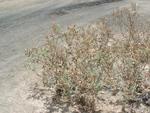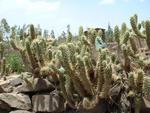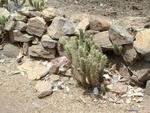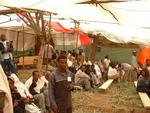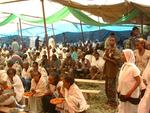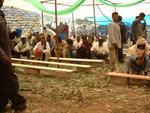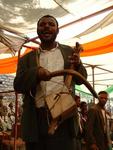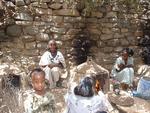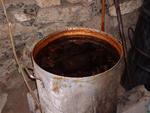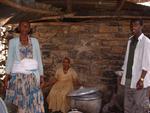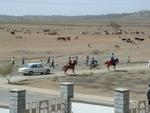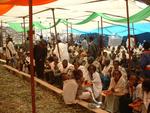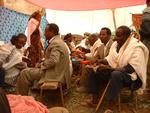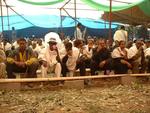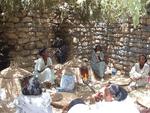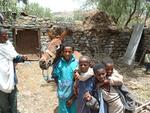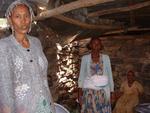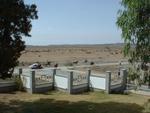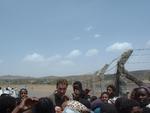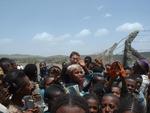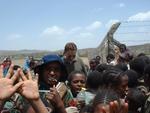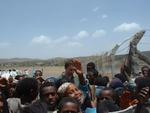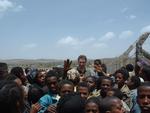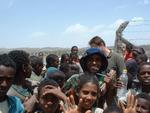Wow! It's only been two days since the last entry. However,
the last two days are packed with stuff, so I thought that I
would write while it was still in my head. Molla also wanted
to read today's entry so I need to do it quite quickly.
Yesterday, Friday, the invisible lorry actually arrived.
Admittedly, only some of the things I ordered were visible,
but at least it arrived. We got some of the voltage
regulators that I had requested, all of the UPSs, most of
the network equipment, but none of the tables or chairs.
The students, as usual, were keen to help by carrying things
to their destinations. There were tables for the electronics
lab. These were very large, heavy and made of metal. I think
all of them had been damaged in some way in the lorry from
Addis. I don't think that the lorry drivers really take much
pride in what they do. When you have to wait so long for the
stuff to arrive, you are less inclined to worry about such
things. I wonder what would happen if they created 'ferenji
shipping'.
On the Friday evening, I kept the regular VSO appointment at
the hotel. I was a little skeptical about this. It is
unlikely that Mekelle will be targetted by any terrorists,
but this wasn't quite keeping a low profile and avoiding
places frequented by westerners. Keith, the vet I had met
previously in Mini Bu-Bu, was there. He had some fascinating
stories about being arrested, and he was describing the
technique for castrating donkeys. So, if you have a donkey
and you want to lop its nuts off, I think I can probably do
it. We ate at the Geza, and on the drive over he showed me
the actual cutting tool. I was quite relieved to hear that
they use two anaesthetics - a general and a local.
Friday was also the first night that the lab attendant
scheme ran. It seems to have been successful so far. I saw
some of them today (Saturday). I was quite pleased that the
lab was not completely full but nearly all of the computers
were in use.
I spent this morning tidying up the office and server room.
It should be tidy for when I am not here - try to keep
things simple for Molla and Hagos, another teacher. They
will be looking after the 'girls' (the two server
computers). I hope that this does not mean much more than
making sure that they have power in the morning. Now that
they have UPSs, they should be healthier.
Power could be a problem. There is talk of having two mabrat
yellem days a week. This could even affect Ainalem. I
haven't noticed the power being off that much here, well not
regularly at least. If we do have more power cuts, this will
severely affect the teaching. The good news is that the big
rains should be coming soon. With them comes electricity
from the hydro-electric plants.
Later in the morning, we started to set up a new server
computer. Hagos, or Ato (Mr.) Hagos to be polite, had his
first go at working on the inside of a computer, moving
drives and inserting network cards. Molla had his first go
at installing Linux. This was watched by a friend from
Kallamino who also had an interest in Linux. We left the
computer doing some formatting at lunch time and headed into
a part of Ainalem for a wedding ceremony. This is really the
bulk of today's entry, and I think the bit that Molla really
wants to read! I am glad that I was invited because, as
Molla said, I should really see one of these ceremonies
before I take my break. This is really wedding season.
Every day a procession of cars travels slowly through Mekelle
blasting their horns to announce the marriage of a pair of
habesha.
Myself, Molla, Hagos, and Genzeb (the friend from Kallamino)
left MIT by the front gate and walked by the roadside along
the outside of the high, barb-wired perimeter fence. The sun
was hot but not unbearably so. I wondered how long the walk
would be because I did not have any sun cream. As we walked,
three young girls walked closely behind us. Curious about
the ferenj in front of them. We didn't actually pay much
attention to them. However, I was interested in some slender
bushes that made a kind of hissing noise in the wind.
Although I was interested in these bushes I was later told
that the locals do not share the same interest and they have
a less than pleasant name for them, something about cursed.
The ground we walked on was part dust, and part yellow, dry
grass. The floods that have hit southern Ethiopia have not
touched the north. As we approached the place of the
ceremony, we passed low stone walls with cacti growing from
them. The closer we got, the more cars we saw. We walked
through a narrow passage where there were guards checking our
tickets. They didn't bother with mine but the guards did say
hello, using my name. Like so often in Ethiopia, I did not know
if I have met them before. However, I shook all the hands
I could (with the correct hand), and said hello while bowing
slightly. I think that it is seen as a good thing to have a
ferenj at a wedding, and I was the only one there.
Once past the guards, we were in a covered, low stone-walled
enclosure that was packed with habesha. Some were dressed
smartly, others casually. Some were dressed traditionally,
some wore western clothes. The covering was provided by
orange and green plastic tarpaulin held up by thin
eucalyptus wood poles. The area was roughly square with each
side being maybe 20m at most. The floor was covered in green
plants, presumably to give the 'green' feel. Low benches had
been created using planks of wood and concrete blocks. I say
that they are low, but traditional seats are low in
Ethiopia. Nobody stood out as the bride or the groom. I
asked, and I was told that the party was part of the dowry.
It certainly looked expensive. There were many people and a
lot of food.
Molla instructed me to start taking photos. I think this was
part of the reason I was invited. We certainly had fun with
the camera.
Just to the left of us was a table with people serving
enjera and wot. Molla grabbed a plate from me while I
struggled to get the camera out of its case, we then took
some seats in the middle of the room. Immediately, someone
came over to give us some plastic cups and tella - the local
beer. I am not expert in tella but it did taste pretty good.
You had to ignore the bits of grass and whatever was
floating in it, mind. The men with jugs of tella moved
rapidly around the party, making sure that everyone's cup
was kept charged.
Children, as usual, found me fascinating but they did not
come close enough to talk to me. Most of them did not have
the confidence. Immediately in front of us sat three young
men doing, so it seemed, their best to ignore a musician
singing in front of them. I have to admit that I think
singing is too grand a term. It was more barking, and like
most musicians that move around at parties or restaurants,
he was dutifully being ignored by his immediate audience. He
carried an instrument roughly the size of a violin. It had a
long thin neck a single string, and had a diagonal box
covered in animal skin of some kind. It was played using a
bow but it was held vertically. Unfortunately I couldn't
hear much noise coming from it. Maybe that was fortunately,
actually. I could hear him saying something about ferenj,
and I was told that he would come to us soon.
When he came to us, I took a photo when instructed by Molla.
Being a digital camera, we have a bit of fun when we show
them the picture on the back of the camera. We did this
while he was either singing or saying something. I say this
because he suddenly went silent and gently slapped his
forehead with a look of confusion. This action got the
attention of the other party goers. I think what he was
singing had been a mild joke or comment about ferenj. I was
told something about him singing about the number of cattle
my dad had. The digital camera redressed the balance, as
people were now gently laughing at him (but in a nice way).
I think that people were surprised that he had seen
something that would stop him singing.
Molla led me out of the back to a group of women who were
preparing the enjera. I did as I was instructed - take some
photos and show the subjects. This, once again, had a very
good, and positive effect. You would take a photo, and watch
their faces as they watched you fiddle with the controls to
make the picture appear. When you turned the camera around
to show them the picture, well this is when I really needed a
camera! Mostly it was a kind of coy, shyness but always
smiles.
Just outside this kitchen children leading a horse wanted
their picture taken so I obliged. According to Keith the
vet, getting people in the picture is not a problem. Keeping
them out is. However, I took the picture of these children
and a horse with its head being twisted into the group. They
too were excited to see their picture. The horse didn't seem
interested though.
Molla led us to another kitchen area where women (there were
no men in either of the kitchen areas) were preparing more
food. One of these women I think I recognised as Molla's
seratagna but I am not sure. The photos had the same effect
here. However, we received the high-pitched lalalalas. This
is a sign of happiness and thanks. I don't know if men make
the noise as well, but as well left the kitchen six women
were warbling their gratitude.
We then went back into the main part of the party, found
that our other two friends had left, and them joined them
outside. It was a shame that we couldn't have brought a
bottle of that tella back, it was pretty good stuff
including the grass and dead flies. Not a bad way to go.
The walk back to MIT was quite eventful. It was a real
'Billy Connoly' moment. As we approached the corner of the
perimter fence, near to the road. Children from the school
opposite were leaving. Many of them were coming quite close
to get a better look. I told my habesha friends that if they
were not there, then the children would be more interested
and would probably flock round me. Hagos did not sound
convinced, so I told him, and the other two to walk ahead,
and I said 'Selam' to the children.
The children did start to gather but they kept their
distance and did not say much. I thought that one would be
brave enough to shake my hand in a less than a minute. Hagos
prompted them by telling them to say hello in Tigrinyan.
I think it was one of the girls who was first to touch my
arm. However she did so as if it was electric. It was a
quick touch, the movement back had started before the
movement to touch my arm had even finished. I don't know
what the children thought would happen when they touched me.
Pretty soon children were shaking my hand quite confidently.
There was now a crowd of at least thirty children
surrounding me. I could see Hagos and Genzeb in front of me.
Behind me was Molla and I passed my camera to him. Partly so
he could take photos, partly so I could concentrate on what
was in my pockets.
I started to walk again, and the children cleared a path for
me and followed us to the gate of MIT. It was a shame when
one asked for 'money'. However, I did get to use a bit of
amharic. When a child asks for one birr, and they say the
number one in English. I ask if the want 'wenber', which is
a chair in Amharic. This received laughs from the children,
so I think that we were all happy.
On the approach to MIT we were met by our guard. This also
meant that we lost the entourage. The guard made sure of
that. I don't think that he threw it but he definitely
picked up a stone ready. This is normal for guards and
children here. The first duty inside MIT was definitely to
wash hands. Snotty nosed children probably means snotty
hands.
We returned to the lab to work on the server computer. While
we worked, the wedding procession passed MIT and I went out
to take photos. Unusually, this had riders on horseback. One
carried a whip, and I could hear the crack arriving at my
ears several seconds after it snapped beside the child he
was trying to keep away from the horse.
I think that it is likely that there will be another wedding
coming up soon. Goitom (the proctor at MIT) will marry soon.
This really is wedding season. He asked if I would be his
best-friend. I presume that he meant best-man. I have no
idea what this will involve here but I am certainly game;
especially if it makes it special to have a ferenj present.
On a more work oriented note I am now considering what I
need to teach them on Monday and Tuesday, and how I am going
to do everything I need to do before Wednesday. Wednesday is
a holiday here, and I will be flying to Addis on Thursday. I
sincerely hope that it is not Wednesday that we have no
power. I need that day to take photos of Mekelle before my
break.
